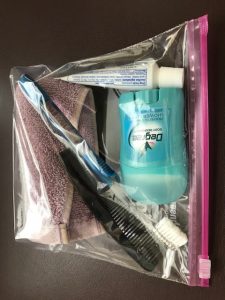Being Prepared
What does “being prepared” mean? Can “being prepared” be different for each family? Can you determine if your preparations are truly helping your family be prepared? What are we “being prepared” for?
With the current health crisis, as we experience worldwide pandemic created by a virus bred far away from most of us, some of us may realize that we are not prepared for a crisis. A crisis could include everything from what we are currently experiencing to something very personal such as a business failure, layoff, or personal health crisis. Let us look at some of the things we should be prepared for and how to prepare ourselves and our families.
Weather Crisis
We live in Florida. On the East Coast of Florida to be exact. We have lived in Florida since 2004 – the year of the hurricanes! 4 of them hit Florida within weeks. We lived through and we stayed! We experienced those in the central part of the state. However, we have since moved to the east coast. And yes, we have experienced another hurricane that devastated our eastern neighbors; then skirted our coast and headed north. Were we prepared? We were.
We grew up in Western, NY. Lake effect storms were common. My (Nancy) family lived in the hills 13 miles from Fillmore, NY and 12 miles from Belfast, NY. Because of the remoteness of our farm, there were many times when we were snowed in for days on end. Were we prepared? Yes, we were. Furthermore, it was easy to be prepared because we grew much of our food. We always had a good amount of what we needed to buy at a grocery store. We had our gas tank, grew our vegetables, and harvested our meat. Also, we had chickens and cows so there was always milk, eggs, and butter. The cows and animals were fed because we also grew their food.
The downside was that there were times when we had to dump our milk because the milk truck could not get there to it pick up. That meant an income loss. However, it was never for long enough to threaten a sound, diversified farm business. My father and grandfather knew and practiced several good business practices. They knew income diversification was one key to being successful. Cows, sheep, and chickens all provided income. Secondly, they also knew self-reliance was a good practice. Therefore they grew what their animals needed for food. We did not grow corn but we obtained it through trading extra oats for corn at harvest time. We were always prepared.
Today, we always have at least a two week supply of food, personal hygiene essentials – yes that means TP! and cash on hand. We also have two cars with full gas tanks at hurricane season. Although we live where we do not use a personally owned gas grill, we have a small camp version as well as a gas lantern. We know how to get out of town if we have to! And we have what we need to take with us is organized, compactly so we can leave quickly. Remember if you have to flee, so does everyone else. Know your alternative routes other than interstates, thruways, and turnpikes.
So what do you need to do to be prepared for? The first considerations are where do you live and therefore what might you experience? Are you going to most likely experience a blizzard, an ice storm that wipes out power, a tornado, or a hurricane that wipes out power, affects water supplies, and closes everything? Are you going to have to flee or hunker down? Most likely it could be either depending on the situation. We now know that a pandemic health situation could mean hunker down no matter where we live.
The second thing to consider is how many of you are there. Do any of you have special needs and therefore how much food, water, prescription drugs, formula, diapers, etc do you need for one week? Slowly build up those supplies and then work on week two. Be certain you know where all family members’ medical records are. Also, collect birth certificates and other personal records and information. If you might have to flee have those records and all insurance – life and all other plus records, deeds, and titles together in a safe place. They should be easy to grab and in a waterproof envelope or container.
Once you determine whether you might need to flee or hunker down, next determine what you need. Next, take the steps you need to take to be certain you can respond appropriately. Fleeing is typically for only a short period. We recommend that you plan for 72-96 hours. You need changes of clothing, cash, snacks, and/or full meal items and water.
If you have a family try a Need to Flee Drill. School-age children and teenagers should be able to pack their backpacks with 3 or 4 changes of underwear, pj’s, a couple of changes of clothing, handheld games, cell phones, and chargers. Teach them to roll their clothing so it takes less space and wrinkles less. Put teenagers in charge of other jobs as well. They are great helpers to collect snacks, water bottle/jug fillers, pet preparers, and home security checkers. If you have a large family with a wide age range of children give each younger child an older buddy to help them prepare.
The amounts of food and water that you will need depends on where you are heading. If you are going somewhere that gives you the capability of purchasing food and water then you may need more cash then supplies, However, remember there may be shortages as everyone else may be fleeing as well.
Here is a list of fleeing suggestions:
- water to get everyone through the first 48 hours (one gallon per 24 hours per adults and less for children depending on their age and weight)
- a cooler and food supply for 4 to 6 meals minimum. These need to be cold foods such as sandwiches, cereal and fruit, yogurt and fruit, cheese, and peanut butter, fresh vegetables that can be snacked on, and other family favorites. A frozen loaf of bread will thaw and it will help other items stay cold, reducing the space that you waste on ice.
- a tub of dry foods such as granola bars, protein bars, crackers, a can opener and canned items like tuna, chicken or salmon, Vienna sausages, sardines or any family favorites, along with chips and pretzels.
- pillows and blankets.
- If you are rest area hopping take a bag of self-lighting charcoal or two, skillet, egg mixture for scrambling, frozen burgers and/or hot dogs, breakfast sausage, baked beans, or other canned vegetables, utensils for cooking. Again the frozen meat can replace part of the ice in the cooler.
- flashlights and batteries, a portable charger for phones, first aid kit any medications a family member might need.
- TP, paper towels, tissues, wet wipes, hand sanitizer, and personal hygiene items. You should always have an extra 2 weeks to one month’s supply of any critical disposable products.
- Paper cups, plates, and disposable cutlery.
Items 6-8 should be kept stored together in as compact of a form as possible. They can be bulky but they are greatly needed.
Here is a suggestion: Use a quart storage bag for each person and write their names on them. Place a washcloth, toothbrush, small brush or comb, travel size toothpaste, deodorant, shaving creme, and disposable razor, shampoo, or whatever other personal items that person may need for a short trip away. Keep these travel bags stored in a compact waterproof container that can be grabbed as you are ready to flee.
In Florida sometimes we often go to shelters. This fleeing list works well for shelter goers as well.
If you have to hunker down consider the fact that particularly here in Florida or anywhere along the East coast, that you may be without power for an extended period. Fortunately, we have plenty of time to prepare for a hurricane. Here is a list of things that are important if you are without power for an extended length of time.
- a bathtub full of water for flushing. If you have a pool you can use pool water after the storm has passed. Generally, we do not experience water outages but…
- Freeze a couple of large containers of ice. Gallon freezer bags work well as do the large ice cream buckets. If you place one or two of these in your refrigerator you will create an icebox that will keep food cold for 4 to 5 days. It generally takes the ice 24 hours before it even begins to melt.
- As the storm nears transfer items that you will use in the next 24 to 48 hours into a cooler(s) with ice or frozen items. This lets you leave your freezer and fridge closed for that time. Remember you can use frozen items to help keep the cooler cold. Eat them as they thaw.
- Plan a menu for the 72 hours and make certain you have all of the items needed for the meals either in the pantry or cooler.
- How will you cook? If you have an electric range and grill buy a gas grill so you can cook once the storm is passed if the power is off. Always have a backup propane tank.
- Know where your candles, flashlights and other emergency lighting is and check your battery supply.
- If you have a generator, never assume you have enough fuel to get you through. Use it sparingly and always use it only outside.
- have a battery power pack for phones and media charging.
- enough food storage and water for two weeks. Again, a menu helps you know you are ready and have sufficient supplies. There are numerous websites with creative ideas that can help you plan meals.
- Have all your important papers collected and protected in case of flooding because of wind damage or rain.
Health Pandemic
As I write this we are in a hunkered down because of the COVID 19 virus pandemic. This is a crisis that could go on for weeks, and could even be repeated next flu season. The grocery stores are open but they are also places where you have no control over those you are coming in contact with. It is best to stay in as much as possible. This is at best a modified hunker downtime.
- This is one of those times that you need at least two weeks of food storage to help prevent unnecessary trips to the grocery store or other stores.
- Also, as in any of these emergencies, you may miss a payday or two. Find a way to get away from living from paycheck to paycheck.
- Know the symptoms and get medical care or tested if you think you are ill.
- Wash your hands, clothes, sheets, and towels often.
- get plenty of rest
- Eat healthily, take your vitamins, and your immune boosters. A healthy body and strong immune system are your best defense against this or any virus.
- drink plenty of water. Dehydration makes you more acceptable to a virus.

- If your home is dry find ways to add some moisture as viruses tend to do poorly in the more humid air.
- keep your mind and hands busy
- Listen to the news to stay informed and then SHUT IT OFF. You do not need to hear doomsday reporting all day long!
- If you are tired of eating in go through the drive-through at a restaurant where you know they have good health standards or order home delivery. Tip well! These workers are making far less than they normally make.
Financial Crisis
A family financial crisis can be the hardest to prepare for. It can be caused by a layoff or by a personal health crisis. Having the above-suggested food and supply storage can help in a financial crisis as well. However, having 60 to 90 days of expense funds in the bank and cash is vital.
It is perhaps the hardest goal of preparedness to achieve. Some of us live on personal retirement accounts and Social Security so we may feel somewhat stable financially. However, market fluctuation can change that income sometimes drastically. For those who are employed your income may be even less stable. No one knows when a business is going to have to lay off employees or even close their doors. No one knows when a health situation is going to cause extensive work loss or perhaps even permanent work loss. Here are some suggestions to consider and perhaps help you become more prepared.
The first step is to have a budget. Know where your money is coming from. Know where it needs to go each month and stay on track. Also, know your income’s loss risk factor. How stable is each source of your household income? Knowing this will help you determine how much income you need to have stored away.
Let me share our scenario: We both receive Social Security, however, it does not provide the income we are comfortable living on. Therefore we need a reliable income. Also, we have a home-based consulting business that you are visiting as you read this post. There have been years when it has been extremely profitable and years when it has not. I work commission sales and therefore have varying income. Planning and saving are essential as our incomes fluctuate. However, because it has been that way for years we know what we need to do to be prepared.
We stay prepared in several ways. Fortunately, Emmett works for a company that gives stock so he has built a nice retirement account through their plan. Plus a deposit is made into our savings account every time he gets paid. If I do not work for a company that has a savings plan, I create my own. When my commission hits my account I divide it into the tax account, savings account, and the spending account! All of these actions help us be prepared. Below are some tips to help you be prepared.
For those of you employed:
- Set aside a percentage of your income every week (payday). Some employers will take a percent out of your check and place it into savings for you. If you have direct deposit your bank or credit union may also offer the same service. If they place even $10 in savings every week before the deposit goes into your checking you will never miss it. In a two-income family, you would save over $1000 a year by that method alone. Do more if you can. Also. always add any additional income like bonuses and overtime. Your goal should be to accumulate enough to cover 3 months of bills if your income stops.
- Take a certain amount of cash out of the bank each month and stash it somewhere safe at home. Do it in small amounts and it will add up to be used in an emergency. Throwing change in a jar is a great way to save or to supplement your cash saving plan.
- Be certain to have disability insurance in place. If your employer offers these plans, participate. They can provide for your family in the short term and longer terms of illness or disability. Self-employed individuals, build your plan or purchase a plan through your financial institute or a company called Combined Life or someone similar.
- Don’t skimp on health insurance. Get the best you can while also preparing to pay your share. Also, HSA’s are a great option.
- Have enough life insurance to keep your family secure if something should happen to the income earners.
- Save for retirement. Have a plan and keep on track.
For those of you that are on a fixed income/retired:
- What are your income sources? Hopefully, you have more than one.
- Be certain that you are getting all of the Social Security benefits you deserve.
- Are you certain you are using all of the money available to you? Have you forgotten Whole Life insurance policies, 401k’s, IRA’s or company retirement plans from long ago that you may have forgotten about? ( I found $46000 for a friend of ours by accidentally opening his “junk” mail while he was out of the country!)

- If you are a veteran be sure you are taking advantage of all the benefits you have available to you.
- Diversify your investments. Place some portion in a vehicle protecting the initial deposit or a certain base amount from loss.
- Have your burial or final expense insurance in place.
- Update all wills, trusts, and other vital planning in place.
- Have 3 to 4 months funds needed to cover your monthly expenses ahead. Have cash on hand.
This post covers many possible scenarios. I hope it is helpful and at the least provides food for thought and inspires you to take your first steps in becoming prepared for unexpected personal events, weather events, and national disasters. We do not know what our future holds from one day to the next. However, preparing eases the stress these events cause for us when they do occur. We wish you good health and happy stress-free, uneventful lives but trust you will be prepared for events that may come your way.
https://holistic3dhealth.com/product/family-healthy-e…g-lifestyle-plan


